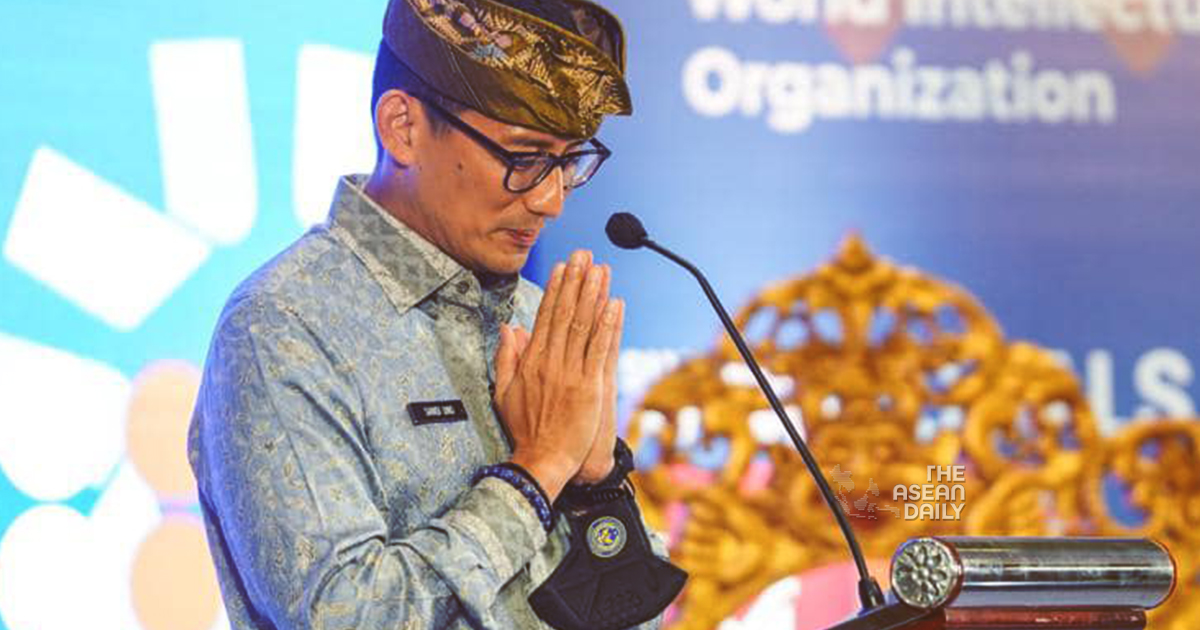27-6-2024 (JAKARTA) In a bid to elevate Indonesia’s status as a premier destination for international events and bolster its burgeoning tourism industry, the country is embarking on a comprehensive digital transformation initiative. Sandiaga Salahuddin Uno, the nation’s Tourism and Creative Economy Minister, revealed that efforts are underway to digitize permits and licenses required to host high-quality global events.
Speaking on the sidelines of the World Economic Forum conference in Dalian, China, Uno acknowledged the challenges Indonesia has faced in attracting popular international events due to bureaucratic hurdles and red tape. “Some of the musical events (and) sports events… have seen Indonesia as a good market, but sort of back away when it has to deal with the bureaucracy, the red tape and the steps it needs to fulfill before the events could be successful.

Uno emphasized the need for flexibility and streamlined processes to attract sought-after events to Indonesia, citing President Joko Widodo’s recent remarks about the complex bureaucracy that hindered pop star Taylor Swift from holding concerts in the country, leading her to opt for Singapore instead.
Beyond facilitating event hosting, Indonesia’s digital transformation endeavors are part of a broader strategy to propel the nation toward developed country status by 2045. With 11.7 million international tourist arrivals in the previous year, delivering a 40 to 50 percent increase in spending per person, the tourism sector is poised to play a pivotal role in driving economic growth.
The World Bank forecasts Indonesia’s gross domestic product (GDP) to average 5.1 percent annual growth from 2024 to 2026, despite global uncertainties. However, Uno acknowledged the need for even higher growth rates, citing the newly elected government’s ambitious target of 8 percent GDP growth within two to three years.
To sustain domestic consumption and achieve developed economy status, Indonesia must focus on green transformation and creating quality green jobs, according to Uno. Embracing digital transformation, investing in infrastructure, and strengthening institutions are also critical priorities.
Uno emphasized the importance of improving connectivity for tourists, particularly as more digitally savvy travelers explore Indonesia’s offerings. While progress has been made in building a wide network of internet connections across tourism destinations, he acknowledged the need for further advancements.
The digital transformation extends beyond the tourism sector, with the creative economic industry, contributing nearly 8 percent to Indonesia’s GDP, poised for rapid transformation. Uno stressed the necessity of upskilling, reskilling, and developing new skills to harness the potential of the digital age in this thriving sector, which encompasses fashion, craft, and culinary arts.
On the island of Bali, a renowned tourist hotspot, Uno highlighted the need to distribute visitor flows more evenly, as the southern region grapples with congestion. Infrastructure development in other areas is underway to improve interconnectivity across the island.
Addressing concerns about the behavior of some tourists in Bali, including incidents of indecent exposure and public fireworks displays, Uno warned that authorities would take a firm stance against such conduct. “We need to actively promote and educate tourists that this is the type of behavior that isn’t welcomed. When you come to Indonesia, you respect the culture,” he cautioned, adding that social media has proven invaluable in monitoring negative tourist behavior.
While initially aiming to educate offenders, Uno stated that repeat offenders would face stern consequences, including deportation, to send a strong message about Indonesia’s commitment to preserving the quality and integrity of its tourism destinations.
Beyond Bali, Indonesia is accelerating the development of five ‘super priority’ destinations – Lake Toba in North Sumatra, Borobudur in Central Java, Mandalika in Lombok, Labuan Bajo in East Nusa Tenggara, and Likupang in North Sulawesi – to diversify its tourism offerings.
Moreover, the country is focused on optimally presenting its creative economy products, such as fashion and culinary experiences, to the world, aiming to boost exports and global recognition of Indonesia’s rich cultural tapestry.




